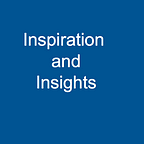Turning Crisis Into Triumph
Women’s Campaign Fund
Accepting the invitation
In the hopeful pause between the pandemic’s ravages in the U.S. and the promise of its taming by vaccine, we have many reasons to be grateful. High on that list is the invitation issued by the overwhelming challenge of COVID-19 to do things better, fix what’s broken, and not just rebuild, but repair, our economy.
Economic recovery is a golden opportunity to ensure greater resilience for future national and global crises by creating an economy that really works for working women.
Facing the economic blow
COVID-19 has had a staggering impact on women, leading to the now familiar “she-cession.” We all know that shut-downs in the consumer, retail, and hospitality sectors — among the largest employers of women — along with school closures due to lockdowns put women in a double bind: logging double shifts (at least) to care for children, while working their jobs fulltime from home.
The outcome is sobering. In the U.S., 25 percent of women at all stages in their careers have considered downshifting their responsibilities or leaving the workforce altogether, according to a McKinsey study. Women in senior-level positions were 1.5 times more likely than men to consider slowing down or leaving.
Rewriting our contracts
COVID-19 prompts a re-examination of critical components of our social and economic contracts with government, expanding our concept of “infrastructure,” to include rebuilding and protecting public health systems gutted by the last major economic downturn in 2008. The crisis gives us fresh perspective on what we consider essential, not only to public health, but to social, professional, and economic health as well. Current proposals that support early childhood education, college education, and family services such as childcare offer opportunities to unleash for women — and for all — greater productivity and economic power.
“Although the pandemic has starkly laid bare the many cracks in our systems, it has also given us a unique opportunity to rebuild in more equitable and just ways.”
• Marianne Schnall, founder, What It Will Take Movements
Filling our prescription for health and healing
Avivah Wittenberg-Cox, the CEO of 20-first, a global consultancy identifies four diverse yet common threads in women’s leadership during the pandemic: trust, decisiveness, tech, and love. Good leaders from both genders all draw from the first three factors, she notes, but the fourth — the ability to express love and caring — is one quality that often differentiates female from male leadership styles.
“Although the pandemic has starkly laid bare the many cracks in our systems, it has also given us a unique opportunity to rebuild in more equitable and just ways — with women’s leadership at the helm, which would benefit us all across many divides,” writes Marianne Schnall, the founder of What It Will Take Movements.
These observations mesh with ours on the road to #5050x2028. In their ability to tell the truth, be decisive, embrace the new, and lead with authentic expressions of love and compassion within their communities, whether those constituencies are local, state, or national, women are natural-born leaders.
Of necessity, the path ahead steers us to new leaders, many of whom are women. Women who, with dogged determination yet finessed flexibility, are focused on finding panoramic solutions that widen our view of what’s possible.
As we ponder what COVID adaptations will become part of our collective new normal, what these women bring to the table is just what the doctor ordered.
©2021 Women’s Campaign Fund
#5050x2028
